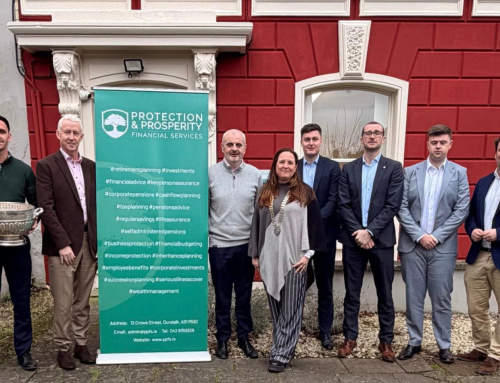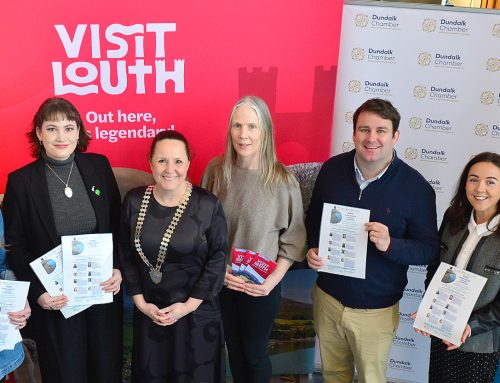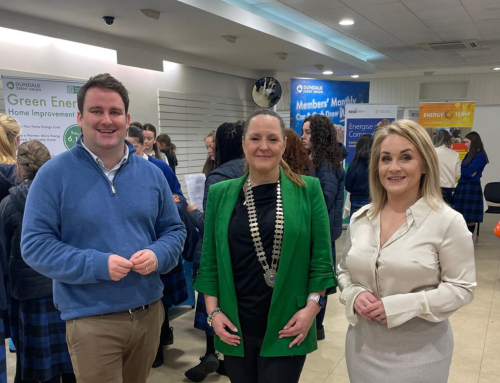Dundalk Chamber recently held its regular Cross Border Seminar on Taxation and Social Welfare in partnership with the Cross Border Partnership for Employment Services (CBPES). This valuable initiative is a joint effort between the Department for Communities and the Department of Social Protection, aimed at encouraging and supporting cross-border employment
Joanne Lavelle, Vice President of Dundalk Chamber, opened the event by thanking CBPES for their ongoing support. She welcomed guest speakers Brendan Casey and Rose Tierney, both of whom are regular contributors to these seminars. Joanne also took the opportunity to inform members of upcoming events and invited feedback to help shape future sessions.
Brenda McGeeney, CBPES Advisor, reiterated the organisation’s commitment to supporting cross-border workers and employers, highlighting the Chamber’s vital role in facilitating guidance and resources in this area.
Brendan Casey was the first speaker and addressed the complexities surrounding individuals who have contributed to multiple social insurance systems—namely Irish PRSI, UK NIC, and other EU member state schemes. He outlined recent changes in the eligibility criteria for Irish pensions and pointed out key anomalies and risks faced by those living in one jurisdiction and working in another. Brendan emphasized that social welfare entitlements are governed by different rules than taxation codes, which can lead to confusion and potential pitfalls.
Next, Rose Tierney, a specialist in cross-border taxation, addressed the seminar. She focused on the tax deductibility of pension contributions and the residency rules that impact both employees and employers. Rose cautioned that companies may face dual tax exposure when senior employees live in one jurisdiction but occasionally work from home in another. She also clarified that Transborder Relief does not apply if the employee works from home even part-time; to qualify, the individual must physically travel across the border to their place of work.
Paddy Malone, PRO of Dundalk Chamber and a practicing accountant, confirmed that these issues had been raised on behalf of the Chamber at the Dublin Belfast Economic Conference (DBEC) and with the relevant departments. He noted that these concerns have been included as standard in Dundalk Chamber’s and Chambers Ireland’s budget submissions in recent years.
The seminar concluded with a lively Q&A session, chaired by Paddy Malone, during which both speakers provided detailed and insightful responses to audience queries.
For further information – Paddy Malone 086-8244098






